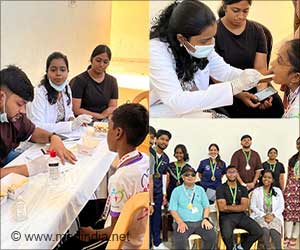
The Study was done by J. Douglas Rizzo, M.D. and Mary Horowitz, M.D., of the Center for International Blood and Marrow Transplant Registry at The Medical College of Wisconsin in Milwaukee, along with Thomas V. Joshua, of the Medical College of Georgia in Augusta and a team of several other researchers.
Bone marrow transplantation, or hematopoietic stem cell transplantation (HCT), is a relatively new treatment that is costly and generally requires lengthy intensive hospitalization and prolonged follow-up care. The number of these transplants has increased rapidly over the last few decades, with approximately 60,000 performed worldwide in 2006. Although HCT has the potential to increase survival for patients with many diseases, particularly cancers of the blood, some recipients die early because of complications associated with the treatment.
Research has revealed a number of healthcare disparities across race and gender. For example, minorities are less likely than whites to receive important healthcare services across a broad array of diseases including cancer, heart disease, HIV/AIDS, diabetes, and mental illness.
The researchers sought to determine whether HCT is used to treat patients with cancers of the blood (leukemia, lymphoma, and multiple myeloma) equally for Caucasians and African-Americans, and for women and men.
"This study helps us understand that in general, access to HCT in the United States is not equal, with African Americans and women being less likely to be treated for the most common indications," said Dr. Rizzo.
Advertisement
The investigators estimated the annual incidence of leukemia, lymphoma, and multiple myeloma in the United States in people younger than 70 years using the Surveillance, Epidemiology and End Results (SEER) Cancer Registry between 1997 and 2002 and US Census Reports for the year 2000. Information on HCT use was obtained from 1997 to 2002 data from the Center for International Blood and Marrow Transplant Research.
Advertisement
"There is a shortage of bone marrow donors who are of African American race. This study may raise the awareness of becoming a bone marrow donor in the minority community," said Joshua.
Source-Eurekalert
SRM














